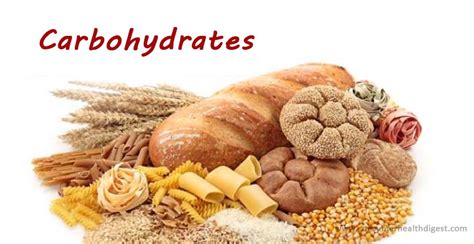What’s the optimal pre-workout nutrition for peak energy & strength?

Unlocking Peak Performance: The Science of Pre-Workout Nutrition
The quest for peak athletic performance, whether in the gym, on the field, or during a long run, often focuses on training intensity, technique, and recovery. However, a frequently overlooked yet critical component is pre-workout nutrition. What you eat and when you eat it before exercise can significantly impact your energy levels, strength output, endurance, and even your recovery post-workout. Understanding the optimal balance of macronutrients and timing is key to fueling your body for success.
The Power of Macronutrients Before Training
Carbohydrates: Your Primary Energy Source
Carbohydrates are the body’s preferred fuel for high-intensity exercise. They are broken down into glucose, which is stored as glycogen in your muscles and liver. Adequate glycogen stores prevent fatigue, allow for more intense and longer workouts, and spare muscle protein from being used for energy. For most individuals, consuming complex carbohydrates (e.g., oats, whole-grain bread, brown rice, fruits) 2-3 hours before a workout provides a steady release of glucose. Closer to the workout (30-60 minutes), simple carbs (e.g., a banana, fruit juice) can provide a quick energy boost without causing digestive distress.

Protein: Protecting and Preparing Muscles
While carbohydrates provide the primary fuel, protein plays a crucial supporting role. Consuming protein before a workout helps reduce muscle protein breakdown during exercise and initiates muscle protein synthesis, aiding in recovery and growth. Aim for a moderate amount of easily digestible protein (e.g., lean chicken, whey protein, Greek yogurt) alongside your carbohydrates. This primes your muscles for repair and adaptation, ensuring they are ready to rebuild stronger.
Fats: Sustained, Long-Term Energy (in moderation)
Fats are a denser energy source, providing sustained energy for longer, lower-intensity activities. However, because they digest slowly, large amounts of fat immediately before a workout can lead to digestive discomfort and may slow the absorption of carbohydrates and protein. Small amounts of healthy fats (e.g., a few almonds, avocado) can be included in a pre-workout meal several hours prior, but it’s generally best to keep fat intake low in meals consumed closer to exercise, especially if intensity is high.

Timing is Everything: When to Fuel Up
The timing of your pre-workout meal is as important as its content. Generally, a larger meal consisting of complex carbohydrates, lean protein, and minimal fat should be consumed 2-3 hours before exercise. This allows ample time for digestion and nutrient absorption without causing stomach upset during your workout.
If you have less time (30-60 minutes before), opt for a smaller, easily digestible snack rich in simple carbohydrates and some protein. Examples include a banana with a scoop of protein powder, a small fruit smoothie, or a rice cake with a thin spread of nut butter (if tolerated).

Hydration: The Unsung Hero
Beyond macronutrients, adequate hydration is fundamental for peak performance. Dehydration, even mild, can significantly impair strength, endurance, and cognitive function. Begin hydrating hours before your workout. Aim to drink 16-20 ounces of water 2-3 hours before exercise, and another 8-10 ounces 20-30 minutes prior. Continue sipping water throughout your workout.

Common Pre-Workout Foods and Snacks
- 2-3 Hours Before: Oatmeal with berries and a scoop of protein powder; Chicken breast with sweet potato and vegetables; Whole-wheat toast with eggs and avocado.
- 30-60 Minutes Before: Banana; Apple slices with a small amount of peanut butter; Rice cakes; Greek yogurt with a few berries.
Supplements: A Potential Edge, Not a Replacement
While whole foods should always be the foundation, certain supplements can offer an additional edge. Caffeine can enhance focus and reduce perceived exertion. Creatine monohydrate is known to improve strength and power output. Beta-alanine can help buffer lactic acid, extending endurance. However, these should be considered complementary to a solid nutritional strategy, not a substitute.

Conclusion: Personalization is Key
There’s no one-size-fits-all answer to optimal pre-workout nutrition, as individual needs vary based on body weight, metabolism, type of exercise, and personal tolerance. Experiment with different foods, timings, and quantities to discover what makes you feel energized, strong, and comfortable during your workouts. By prioritizing intelligent pre-workout fueling, you’ll not only enhance your performance but also support your body’s overall health and recovery, paving the way for consistent progress and achieving your fitness goals.









